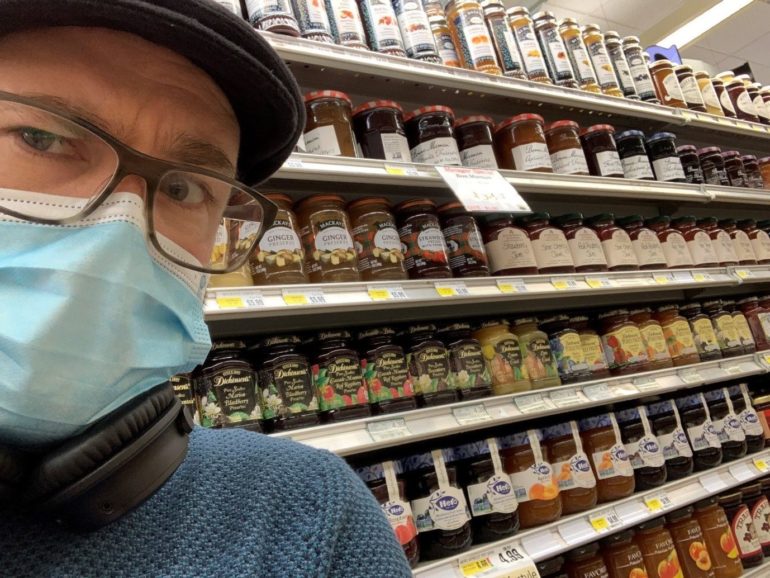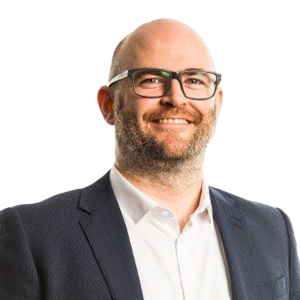Would you like a piece of cake? Would you prefer carrot cake or tiramisu?
Or would you prefer cheesecake? Or fruit cake? Or chocolate cake? Or red velvet cake, Boston cream pie, Battenburg, Black Forest gateau, lingonkaka, pineapple upside-down cake? Or maybe a flourless chocolate torte?
If you found it harder to make an optimal decision as the number of options increased, you are not alone – this common experience is known as choice overload.
"Choice overload: a cognitive impairment in which people have a difficult time making a [good] decision when faced with many options."
Too much jam?
Classical economics teaches us that more choice is always better. In our eternal search for the ideal consumption of goods and services, adding extra options will never reduce what can be achieved – after all we could just ignore the extra option and be no worse off. But this isn’t what happens in practice – there reaches a level where adding more choices is not beneficial, leading people to indecision and suboptimal choices. Due to its contradiction with classical economics this phenomenon is known as the paradox of choice.
In a seminal 2000 paper, psychologists constructed a classic example of choice overload in a US supermarket. They compared the amount of jam people bought when given either 6 options, or 24 options - when presented with fewer options, people bought a lot more jam! One of the biggest differences I noticed after moving to the US, was the enormous amount of choice on the supermarket shelves. Given the problem of choice overload, I’m surprised people in the US buy any groceries at all.

Overwhelmed by choice?
Classical theory assumes that people are perfect decision makers, but in reality this is not true.
To see this, what actually happens when I choose between different cakes? On the surface, I simply buy the cake I like the most – as long as there is one that I like enough – but how do I decide? Well, I would consider…
- How much will I enjoy eating the cake now? What do I expect from taste, texture, smell? What are the relative portion sizes? Have I recently eaten one of these cakes?
- Which cake will I feel better about having eaten in an hour’s time? (I am lactose intolerant, so this could be an important factor.)
- Which cake will I feel better about having eaten in a day’s time?
- What are the relative prices?
- What is the relative importance to me of considerations 1, 2, 3 and 4?
A straight comparison of two different options might be ok, but for 12 options this process is likely to overwhelm me completely and I may just order some tea. This is why I think birthday cake is the best cake - it is the type of cake that someone else has chosen!

This approach to choosing a slice of cake may sound neurotic. But in the information age, when everything we could know about a product or service is at our fingertips in an instant, many simple decisions have escalated to such levels. I’m often of the belief that Trip Advisor and Yelp have made things harder, not easier, for me.
The retirement dilemma
One of the biggest financial decisions many people make is at retirement, especially if their retirement benefits have largely been saved into a defined contribution pension plan.
Over the last 40 or so years there has been a large shift in occupational pensions from defined benefit (final salary type pensions that provide a specified regular lifetime income) to defined contribution (a tax efficient savings account, that provides a lump sum to invest and spend in retirement). This shift has not only transferred the longevity risk from institutions to individuals, it has created an enormous number of choices that people must make at retirement.
Will you invest money to secure a regular income (an annuity)? Will you convert any defined benefits into a lump sum payment? Will you purchase life insurance? Will you purchase long term care insurance? Will you buy a Lamborghini? How will you invest your assets before you spend them?
With this much choice at retirement, choice overload is a very real problem.
Choice architecture
Given the phenomenon of choice overload, how can we help people make (better) decisions without taking away their freedom to choose? The solution could come in the form of how the choices are presented.
1. Default options
A default option is the assumed choice when we make no choice at all: the seat we are automatically assigned on a plane, the search engine that opens automatically with our browser, the pair of shoes closest to the door.
Default options are incredibly important for financial savings. Over the long run, many different options would be expected to give far greater returns than leaving money in a cash account. But choosing the right combination of investments out of the almost infinite array of options can seem like an enormous task and many people will defer a decision indefinitely, leaving their money languishing in low interest accounts. Many defined contribution pension plans now include a very carefully created default savings options, greatly improving outcomes for large numbers of employees.
Default choices can also drive the amount people save in the first place. Automatically enrolling people into a pension plan and automatically increasing pension contributions at set dates have both been used successfully to increase the amount people are saving for retirement. In fact, the very concept of pension savings – a regular deduction that comes out of our paychecks before hitting our bank accounts, is a lesson in the power of default choices for savings.
2. Reduce the number of choices
A large set of choices may implicitly push people towards making no choice at all, so could in fact be thought of as a reduction in freedom. Presenting a selection of carefully curated choices (a notion admittedly lost on restaurants like the Cheesecake Factory) may instead result in someone engaging more in the decision-making process and ending up making a more appropriate decision.
This concept has been seized by online video streaming sites, who use AI to develop a set of appealing choices to relieve stress and increase viewing pleasure. At least that’s the theory, I still have no idea why Amazon Prime continually suggests that I watch Love Island!
3. Give people access to some expert opinion.
With decisions being difficult and cognitive miserliness (a subject I wrote about previously) reducing the attention people are willing to give to certain decisions, perhaps the best way to guide people is through expert recommendations. This is fairly low risk for something like Netflix’s “choose for me” option, but for bigger decisions make sure the expert is someone you trust whose incentives are aligned with yours.
What do you think?
Have you experienced choice overload? Does it have a greater effect for small decisions such as TV viewing or cake choice, or big decisions such as how to invest your savings? Do you have any top tips to deal with choice overload?




